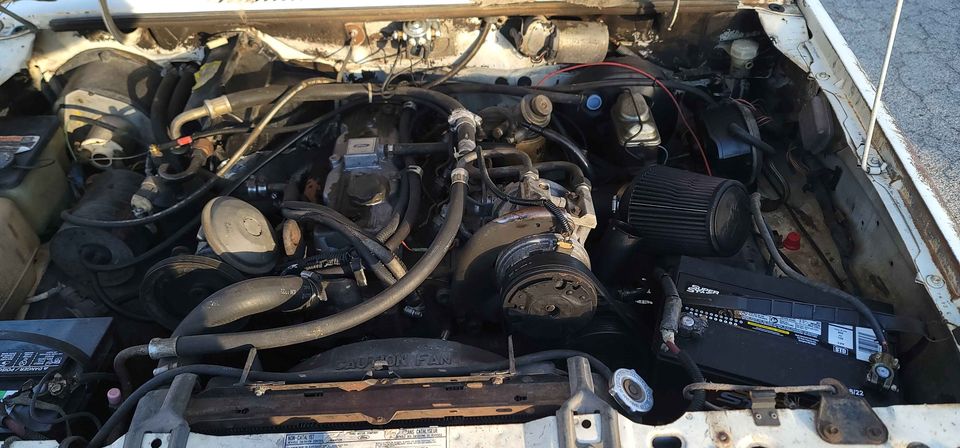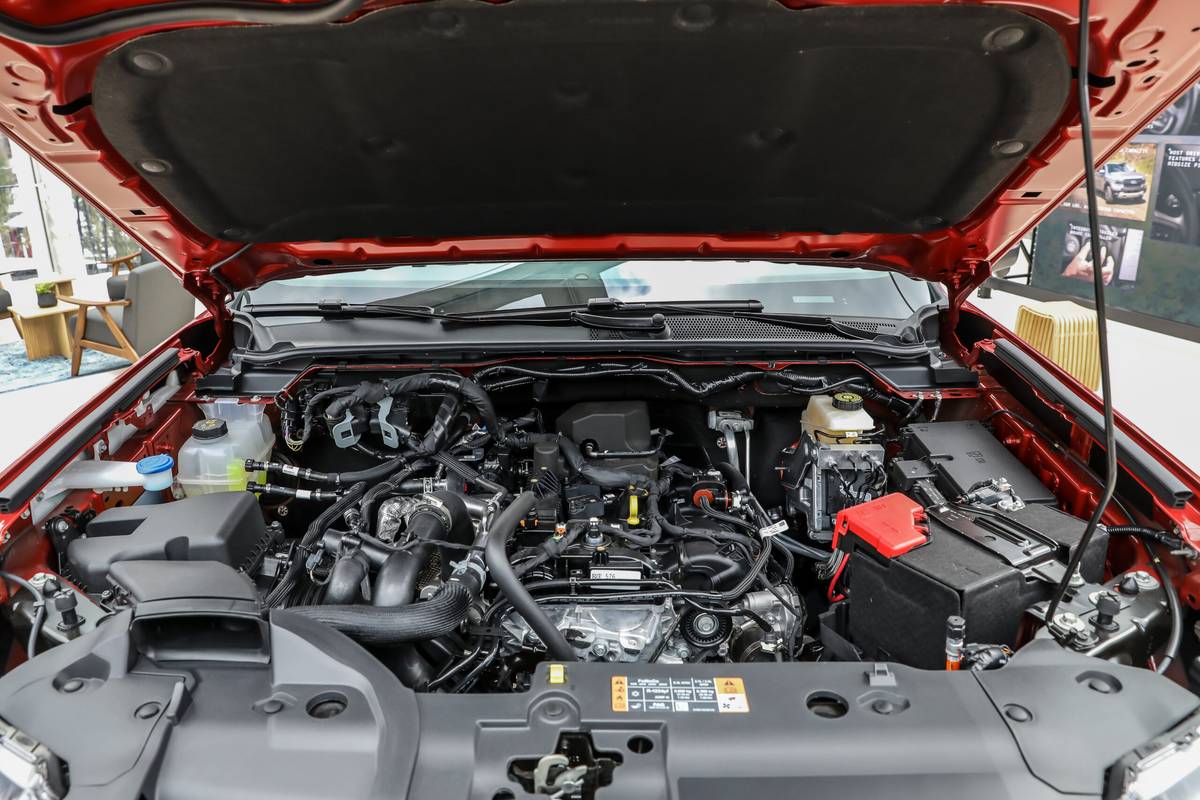Everything You Need to Know About the 2.2 Ford Ranger Engine and Its Performance
Everything You Need to Know About the 2.2 Ford Ranger Engine and Its Performance
Blog Article
Exactly How to Pick the Right Car Engine for Optimum Performance and Effectiveness
Picking the suitable vehicle engine to accomplish an optimum balance of efficiency and efficiency necessitates a nuanced understanding of numerous engine types and their particular qualities (2.2 ford ranger engine). Aspects such as engine displacement, the number of cyndrical tubes, and fuel type play a critical role in identifying both power output and gas economy.
Recognizing Engine Types
When selecting a car, one of the most crucial parts to consider is the engine kind, which functions as the heart of the car. The engine type significantly influences the automobile's general efficiency, long life, and suitability for your driving needs. There are largely 3 engine types to take into consideration: internal burning engines (ICE), hybrid engines, and electric engines.
Inner combustion engines remain one of the most typical, operating gasoline or diesel. They are recognized for their power and velocity, making them appropriate for performance-oriented vehicles. However, they may drop brief in gas performance and environmental influence.
Hybrid engines incorporate an interior burning engine with an electrical motor, providing a balance in between performance and fuel economy. They are progressively popular for drivers looking for decreased exhausts while still providing adequate power.
Electric engines, powered totally by batteries, are getting traction as a result of their environmental advantages and lower running costs. They offer instant torque and a peaceful driving experience, making them ideal for urban travelling.

Performance vs. Performance
Selecting the best engine type entails weighing the trade-offs between efficiency and performance. Efficiency normally describes just how well an engine can provide power and velocity, which is typically connected with bigger displacement engines or those with turbocharging capabilities. These engines normally give electrifying driving experiences and fast action times, making them popular amongst fanatics.
On the other hand, effectiveness concentrates on fuel economy and lower exhausts. Smaller engines, especially those outfitted with sophisticated innovations such as direct gas shot and variable valve timing, tend to deliver much better miles per gallon and minimized carbon footprints. While these engines may compromise some power contrasted to their larger counterparts, they frequently excel in day-to-day driving circumstances where high performance is not always required.
Inevitably, the selection in between performance and efficiency rest on specific priorities. A driver that values perky driving might focus on a high-performance engine, while someone seeking cost-efficient travelling may favor a reliable choice. Understanding these compromises is essential for making a notified choice that straightens with your driving requirements and lifestyle, making sure that the picked engine type enhances your assumptions for both efficiency and efficiency.
Key Specifications to Think About
Recognizing vital specs is necessary for making a notified decision regarding the right automobile engine. When choosing an engine, several essential elements call for consideration to make certain ideal performance and effectiveness.
First of all, engine displacement, gauged in litres or cubic centimeters, is a critical spec. It suggests the total quantity of the engine's cyndrical tubes click this link and generally correlates with power output; larger displacements commonly yield more power. Next, the number of cylinders plays a significant role in performance attributes. Engines with more cylinders can provide smoother procedure and higher power, while smaller setups can boost fuel effectiveness.
Furthermore, the engine's setup, whether inline, V-type, or rotating, influences the overall design and performance attributes of the car - 2.2 ford ranger engine. Turbocharging and turbo charging modern technologies should also be examined; these increase an engine's power result without significantly raising its size, therefore improving performance
Fuel kind is an additional crucial factor to consider, as it impacts both efficiency and expenses. The engine's compression ratio impacts effectiveness and power delivery; a greater proportion normally leads to far better effectiveness, but might need exceptional fuel. By meticulously evaluating these specs, you can pick an engine that straightens with your performance and performance objectives.
Examining Driving Demands
Examining driving needs is an essential action in identifying the ideal car engine for your way of living and usage patterns. web link If your driving mostly is composed of brief commutes in city atmospheres, a smaller sized engine with good gas effectiveness may be sufficient.
Take into consideration the terrain you usually browse. Hilly or tough landscapes might demand an engine with greater torque for much better performance. Furthermore, assess passenger and freight demands; larger families or those who deliver products might take advantage of cars with enhanced power and capacity.
It's additionally vital to examine your gas choices. Diesel motor commonly provide superior torque and fuel economy for much heavier lorries, while gas engines might give a smoother and quieter trip. Lastly, consider ecological considerations, as crossbreed or electrical engines can offer an extra lasting option without giving up performance. By extensively comprehending your driving demands, you can make an informed choice that straightens with both performance expectations and efficiency goals.
Future Fads in Engine Innovation
As the automotive market continues to progress, developments in engine innovation are leading the way for more effective and sustainable driving experiences. One significant pattern is the shift toward electrification, with crossbreed and fully electrical powertrains acquiring prominence. Car manufacturers are spending greatly in battery innovation to boost energy density and lower charging times, ultimately enhancing the practicality of navigate to these guys electric cars (EVs)
Another emerging pattern is the advancement of hydrogen gas cell engines. 2.2 ford ranger engine. These systems offer the potential for zero-emission driving while giving refueling times comparable to traditional fuel engines. Furthermore, advancements in burning technology, such as variable compression ratios and enhanced turbocharging, are optimizing traditional interior combustion engines for far better effectiveness and efficiency
Digital combination is also a critical element of future engine technology. The implementation of expert system and artificial intelligence enables real-time information evaluation, enabling smarter engine management systems that adjust to driving conditions and boost gas efficiency.

Conclusion
To conclude, picking the ideal vehicle engine demands an extensive assessment of various aspects, including engine type, performance requirements, and performance goals. By recognizing the differences in between different engine types and considering vital specs, people can straighten their options with particular driving requirements. As advancements in engine innovation proceed to arise, continuing to be informed about future fads will even more enhance decision-making, ultimately leading to a car that stabilizes performance and gas performance efficiently.
Picking the appropriate car engine to accomplish an ideal equilibrium of efficiency and effectiveness demands a nuanced understanding of different engine kinds and their specific characteristics. There are primarily three engine kinds to think about: inner combustion engines (ICE), hybrid engines, and electric engines.
Performance usually refers to how well an engine can deliver power and velocity, which is commonly connected with larger displacement engines or those with turbocharging abilities. Diesel engines usually use superior torque and fuel economic climate for much heavier automobiles, while gasoline engines might provide a smoother and quieter ride.In final thought, picking the ideal automobile engine requires a comprehensive evaluation of numerous variables, consisting of engine kind, performance requirements, and efficiency objectives.
Report this page